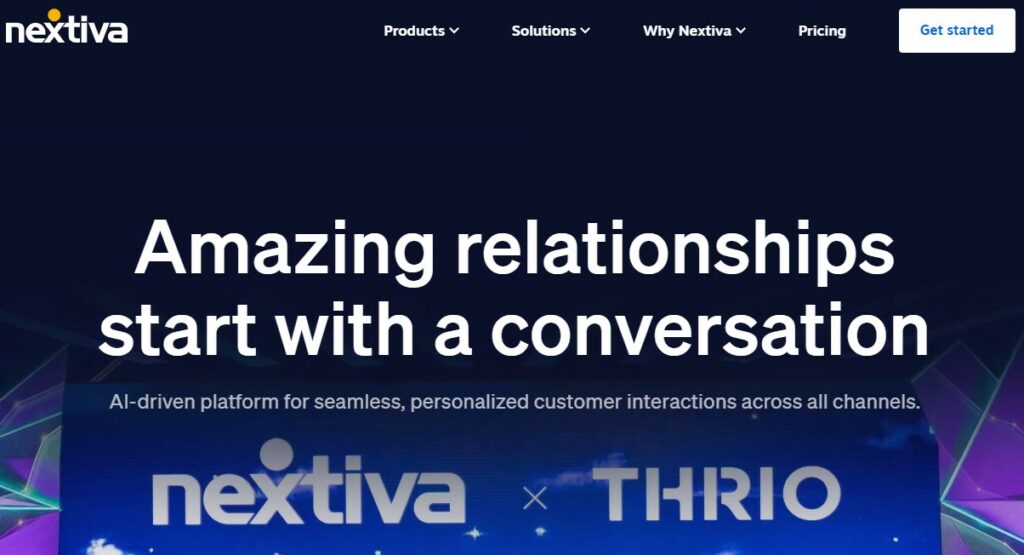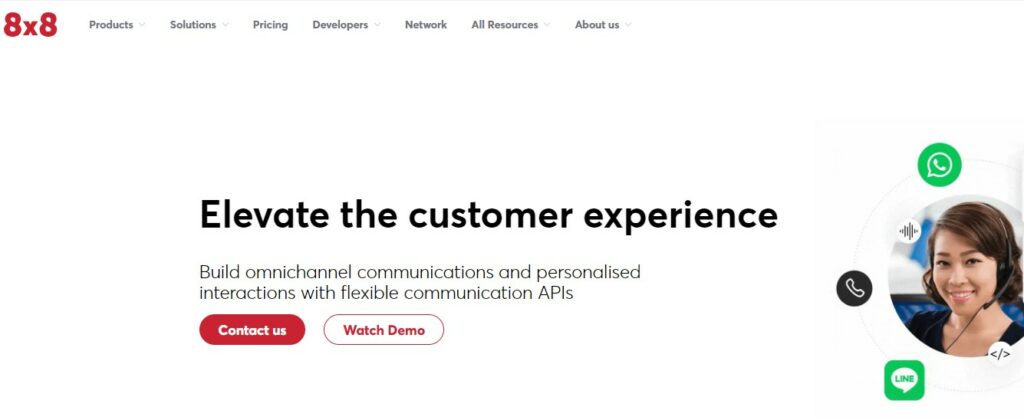Looking for RingCentral alternatives for your business communication needs? You’re not alone.
As companies evolve, so do their requirements for voice, video, and messaging solutions.
RingCentral has been a popular choice for Voice over Internet Protocol (VoIP) services, offering a range of features to support modern workplace communications.
However, it’s always smart to explore the market to find a service that aligns perfectly with your company’s unique demands and budget.
The market offers a variety of RingCentral alternatives that might be a better fit for your business.
Each of these alternatives brings to the table distinct features, pricing plans, and levels of customer service.
Whether you’re a small business on the lookout for cost-effective solutions or a growing enterprise seeking scalable functionality, there’s likely a service out there that ticks all your boxes.
Some offer a more user-friendly experience, while others may provide more advanced features or integration capabilities that could seamlessly fit into your current workflow.
It’s all about finding the right match for you.
Top RingCentral Alternatives
When looking for a RingCentral alternative, you should consider factors like pricing, global footprint, and supported features.
1. Nextiva

Nextiva offers a comprehensive VoIP solution that may edge out RingCentral in terms of user experience.
It provides unlimited calling in the U.S. and Canada, free business numbers, video chats, team messaging, and faxing.
Pricing starts competitively.
2. 8×8

8×8 is another robust alternative that brings strong international calling support.
This platform presents a wide array of features including team messaging, video conferencing, and business SMS.
3. Vonage Business

Lastly, Vonage Business gives you a reliable VoIP service with an emphasis on agility and integration capabilities.
With Vonage, you get unlimited calling, SMS messaging, and desktop and mobile app support.
It is designed to work seamlessly with various CRM systems.
Considerations for Choosing an Alternative
When looking for a RingCentral alternative, it’s vital to consider the features, user feedback, and the scale of your operations.
This ensures you find a solution that aligns with your business needs.
Feature Comparison
Assessing the feature set of potential alternatives is crucial.
Create a checklist of features that are important for your business, such as:
- Messaging capabilities
- Video and audio conferencing tools
- Integration options with other software
- Mobile apps and ease of use
A table format can help you compare these features across different providers:
| Feature | Provider 1 | Provider 2 | Provider 3 |
|---|---|---|---|
| Messaging | Yes | Yes | Yes |
| Video Conferencing | HD Quality | Standard | HD Quality |
| Integrations | Limited | Extensive | Moderate |
| Mobile App | User-Friendly | Complex | User-Friendly |
User Reviews and Ratings
User feedback is a strong indicator of a solution’s real-world performance.
Visit trusted review platforms and note the:
- Average user rating
- Frequency of positive and negative reviews
- How current users describe their experience with support and service reliability
Remember, high ratings combined with detailed positive feedback can signal a dependable alternative.
Company Size and Needs
Your company’s size and specific needs play a significant role in selecting the right service.
Small businesses might prioritize:
- Cost-effectiveness and minimal setup
- A simpler feature set that covers basic needs
Whereas larger enterprises might need:
- Advanced features like CRM integrations
- Scalability for a growing number of users
Evaluate each provider’s offerings against your current and future business demands.
How to Switch from RingCentral
Making the transition from RingCentral to another service involves careful planning around data migration and ensuring you have the right training and support for a smooth changeover.
Data Migration
When you decide to migrate to a new service, the first step is to safely transfer your data.
Here’s how you can get started:
- Identify Data: List all the types of data you currently have with RingCentral—contacts, call logs, voicemails, and so on.
- Export: Use RingCentral’s export features to download your data. For contacts, you may export as CSV files.
- Import: Check if your new provider offers a direct import option from RingCentral or use a standardized format like CSV or vCard for contacts and logs.
Training and Support
Once your data is migrated, familiarizing yourself with the new system is key:
- Training Resources: Look for tutorials, guides, or webinars provided by your new service.
- Support Teams: Utilize customer support or tech support during the initial setup and for troubleshooting.
Remember to check if your new provider extends specialized migration support services to assist you throughout the process.
Future Trends in Business Communication
The landscape of business communication constantly evolves, with emerging technologies like AI and unified platforms steering the way.
AI Integration
You’ll notice that AI is becoming a staple in communication tools, offering unparalleled efficiency and personalization.
It’s present in smart call routing, where your calls are directed to the appropriate person without manual intervention, and in virtual assistants which provide immediate, AI-driven customer service.
Unified Communications
Unified Communications (UC) as a Service is revolutionizing the way you collaborate.
UC platforms integrate voice, video, messaging, and file sharing into a singular, streamlined experience.
- Organizational Agility: Quick access to all communication tools in one place allows for greater flexibility and rapid responses.
- Cost Efficiency: By combining multiple services, you’re likely to see reduced overheads and improved ROI on your communication investments.
Key Takeaways
When considering alternatives to RingCentral for your communication needs, you have several great options.
Let’s look at a few key points:
- Pricing Flexibility: You’ll find a range of pricing models starting as low as $10 per user/month.
- Look for a pricing structure that suits your budget and scales with your business.
- Comprehensive Communication Suites: Like RingCentral, many competitors offer all-in-one solutions.
- Features often include voice calls, video conferencing, and messaging.
- Innovative Technologies: Solutions with AI-driven features, such as workforce engagement management and conversation intelligence for sales, can add significant value.
Here’s a quick comparison of some alternatives:
| Service | Known For | Best For |
|---|---|---|
| Nextiva | Customer communication management | Managing customer interactions |
| Zoom | Video collaboration | Hosting reliable video meetings |
| Dialpad | Intelligent communications | Utilizing AI for smarter calls |
| Vonage | Customizable plans | Tailoring services to your needs |
| Grasshopper | Simplified phone systems | Ease of use for beginners |
Each service offers its unique blend of features, so consider what aligns best with your communication requirements.
Whether you need advanced analytics, prefer video-first collaboration, or are just starting out with a simple phone system, there’s an alternative to match.
Remember to also consider ease of use, integration capabilities, and customer support when making your decision.

